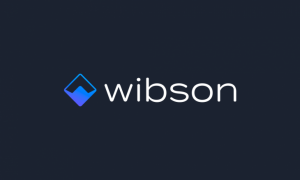The Blockchain War Effort for Social Network Data Privacy
Photo by Miguel Bruna on Unsplash
2018 has been a lousy year for the social internet. After growing in popularity for more than a decade, the social web has endured a series of scandals that significantly tarnished its reputation and obvious desirability.
First, it was discovered that the “Russia Scandal,” which continues to mire president Donald Trump’s tenure, actually had its roots in social media campaigns proliferated by phony accounts and internet bots. Leveraging the power of social media, these campaigns reached millions of users and, at the very least, contributed to the decline of meaningful social dialogue at a time when it was imminently important.

The scandals didn’t stop there. This week, The New York Times exposed privacy fissures on Facebook.
According to the Times, Cambridge Analytica, a research and consulting firm that’s funded by conservative political activist Robert Mercer, purchased information from a Facebook app that, when used, collected copious amounts of personal data from the user and all of their Facebook contacts. This data was used to build targeted advertising campaigns that preyed upon people’s fears, biases, and proclivities.
In total, these events amount to a privacy violation for millions of people, and they exposed the frequently fraught relationship between users, the platforms they love to use, and the advertising that supports them.

Mark Zuckerberg spent ten hours testifying and apologizing before Congress, and the rest of his senior staff has been on an elongated public relations campaign, but we are not any closer to a tangible solution for fixing Facebook.
At times like these Andrew Lewis’ ideas seem more resonant than ever: “If you’re not paying for it, you’re not the customer, you’re the product being sold.” In other words, as the now-famous adage asserts, we’re all being sold.
It’s easy to draw hasty conclusions about the most effective next steps to ensure that something like this never happens again. People start deleting their Facebook apps and swearing off their Twitter feeds. However, these solutions are temporary at best.
The Pew Research Center tracks smartphone adoption, and they’ve found near-ubiquitous smartphone presence. What’s more, the ownership percentage becomes even higher as the user’s age decreases. In other words, it’s foolish to look for change by abandoning technology. Instead, we need better technology to help bring about effective change.
The Blockchain: Ready and Waiting
The timing couldn’t be better.
Cryptocurrencies began surging in value at the start of 2017, and their unexpected rise inspired awareness of its underlying technology, the blockchain. Although it serves as the accounting backbone for digital currencies, the blockchain is capable of far more.
As the 2018 Congressional Joint Economic Report notes,
“Blockchain technology has the potential to help the economy function more efficiently and securely.”
This is especially true for the relationship between digital platforms, their users, and advertisers. Several blockchain initiatives are already in progress, and they bring to this relationship the efficiency and security that the congressional report indicated.

For instance, Wibson created a decentralized marketplace where companies can purchase verified user data to support ad campaigns and other data-driven initiatives. In turn, users are compensated for their information, so they become a notified and intentional part of the process.
In an op-ed for The New York Times, Eduardo Porter insightfully writes,
“Getting companies to pay transparently for the information will not just provide a better deal for the users whose data is scooped up as they go about their online lives. It will also improve the quality of the data on which the information economy is being built.”
Indeed, that’s Wibson’s end-goal: a better experience for users and companies. By emphasizing transparency, anonymity, fairness, and control, Wibson gives users power over their information while deriving significant value from the information that they provide.
For companies, they are guaranteed that the information they receive is useful, accurate, and ethical. It’s a way to prevent the public relationships disaster currently embroiling Facebook, Cambridge Analytica, and the people or companies that did business with them.

For companies looking to capitalize on sentiment analysis, the blockchain can be a useful tool for securely and transparently acquiring that information.
Platforms like Senno are still in the ICO phase, but they represent a way forward for businesses to attain real-time, quality data without the gross privacy invasions that many companies are being accused of now.
As Senno CEO, Elad Peled explains,
“In Senno’s platform, smart contracts will verify all contributed information and pay for it…The data will be physically stored on decentralized storage, protecting using ECC asymmetric encryption, sharding techniques and various anti Sybil attack methods.”
Senno allows third-party plugins to glean information from its decentralized system. By tokenizing user information and utilizing smart contracts, Senno makes the process of receiving reliable, usable information faster and more reliable than ever before.
Give Us A Solution: We Need It Now
Our lives are not getting any less digital, and it’s likely that we will become increasingly intertwined with our technology and the platforms that we love the most. As a result, we need technological solutions to ensure that these interactions are safe, secure, and authentic.
In serendipitous fashion, these are the very strengths of the blockchain, and the platforms being built upon it can be transformative in this way. Wibson and Senno are just two examples; the blockchain is ready for innovation, which is good because we need solutions and we need them now.



 Deribit
Deribit 















































































